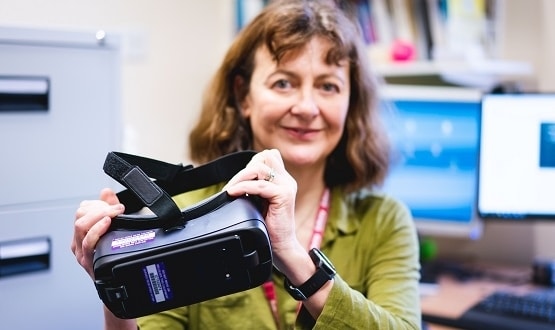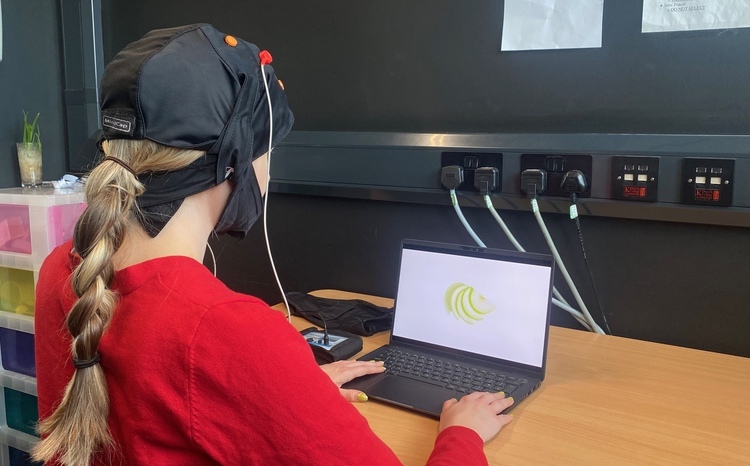Mental health trust introduces virtual reality for phobia treatment

Norfolk and Suffolk NHS Foundation Trust (NSFT) has introduced virtual reality as part of the treatments it offers patients suffering from various phobias.
The trust’s Wellbeing service is now using VR headsets to help service users in both counties to tackle everything from fear of needles, heights, flying and spiders to agoraphobia and claustrophobia.
As part of their treatment, patients are gradually exposed to situations they would usually avoid in a virtual environment, helping them manage their reactions in a safe and controlled environment.
This will take place as part of a wider treatment plan and in addition to talking therapies.
While virtual reality technology is being put to use within a number of NHS trusts, NSFT is thought to be one of the first mental health trusts to offer VR for such an extensive range of phobias, which includes fear of exams, driving, public speaking and storms.
Nesta Reeve, consultant clinical psychologist and clinical lead for the Wellbeing service, said: “We are really excited to be one of the first to introduce this technology so widely and hope it will make a real difference to lots of people who are struggling with a variety of different fears.
“Phobias can have a real impact on people’s lives, preventing them from travelling, enjoying time with friends and, in some cases, even leaving their house. Others can have such severe phobias that they end up putting their health at risk by failing to have vaccinations or avoiding MRI scans or other claustrophobic situations.
Previously, practitioners would work with an individual to build up exposure to their phobia by watching videos or finding a stimulus in the real world.
Reeve explained that virtual reality made the experience more realistic than videos and had the added benefit that the experience could be altered or stopped at any time.
“We are also able to completely control the virtual environment, such as changing the weather conditions for someone who is scared of flying, which can really help to prepare them to face every possible scenario in their everyday lives,” she added.
“Ultimately, we hope that more people will come forward to ask for help with their phobias now that we have this technology, and that using VR will help them to get better more quickly so that they can enjoy activities which many of us take for granted.”
The project at NSFT has been funded with £10,000 in digital innovation funding specifically for Increasing Access to Psychological Therapy (IAPT) projects.
The technology has been trialled in Suffolk by Joe Embrey, a cognitive behavioural therapist who has used it to help people with a fear of needles and agoraphobia.
Embrey explained that VR provided an effective “stepping stone” between real-life exposure and what the patient feels they are capable of doing when they first enter treatment.
“It is immersive and authentic and allows them to experience the stimulus which is causing them anxiety, but in a controlled and manageable way,” Embrey added.
“It has been especially useful during treatment for things such as needle phobias, as the process of preparing for and giving an injection is not something which we could easily replicate in the therapy room.
“It’s been really exciting to be involved in the project so far, and I hope that the technology will make a big difference to lots more of our clients and their quality of life in the future.”
Other examples of VR being put to use in patient care include London North West University Healthcare NHS Trust, which is using the technology to help patients manage anxiety and pain, and Countess of Chester Hospital, which is exploring how VR can help individuals recover following a stroke.




